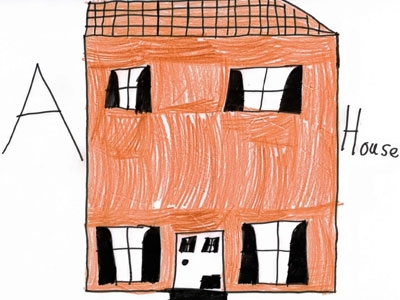
Losing contact with your brothers and sisters is one of the worst things that can happen as a result of entering care, according to Professor Sonia Jackson of the University of London’s Thomas Coram Research Unit. And, according to a study by Action for Children, this happens to 1 in 3 looked-after children.
Although SCIE’s Guide to Fostering states that the research does not provide consistent evidence that placing siblings together always improves outcomes, it’s the norm for social workers to aim to place brothers and sisters together.
In the majority of situations it is the stated wish of children and families that siblings reside together. Ofsted’s Care Monitor report says that 92% of siblings placed together were happy with this decision and Action for Children’s research reporting that children separated from their siblings were distressed because of the separation.
In practice it can be difficult to place siblings together. This can be due to the demands placed upon foster carers. Children may compete to have their needs met and might initially require a highly structured environment in order to feel safe.
Residential care can provide opportunities for siblings to reside together and there is a growing body of small residential homes for children. Consideration should be made to the investment in the research and development of these type of children’s homes to accommodate sibling groups.
For some children, who may be particularly loyal to their family or may be distrustful of relationships, residential care might provide them with the conditions within which they can flourish.
‘Anti-residentialism’
Residential childcare can provide challenges to the development of a child’s ability to relate to carers in a secure way due to the lack of continuity brought about by staff teams, rotas and staff absence.
Alternately, the range of carers can be of benefit to the child since it increases their opportunity to have respite from specific carers and, likewise, carers are able to have respite from the child. This reduces the potential for friction and stress within the relationship.
There has been much criticism of residential care over the years. There are the numerous reports and enquiries into institutionalised abuse of children in residential care. Care Matters: Time for Change identified deficits within the residential childcare system.
And, most recently, the focus has been on the sexual exploitation of children in residential care, children missing from care, poor standards of residential care, homes being in ‘unsafe’ areas, children being placed out of their local area and the low status of residential staff.
In 2013 children’s minister Edward Timpson announced plans that are currently being implemented with the aim of improving outcomes for children in residential care.
There remain many challenges for residential childcare. In the summer an Independent Children’s Home Association report concluded that there was a “anti-residentialism” within local authorities with residential care remaining the placement of last resort.
The notion that residential care is solely for children who have exhausted foster care options should be challenged. Jenny Molloy, co-author of Hackney Child and a former looked-after child, has written about how residential childcare provided her with the care and stability that was essential for her as a young person.
Residential childcare should not be dismissed nor forgotten. By getting smarter with care planning and considering residential childcare as a valid resort, there is the potential for children to experience increased stability.
Investment now is not only for the benefit of the child, but also for society. Perhaps we need to reconsider the benefits of residential care when planning the future for our looked-after children population.


 Bournemouth, Christchurch and Poole
Bournemouth, Christchurch and Poole  Hampshire County Council
Hampshire County Council  Lincolnshire County Council
Lincolnshire County Council  Norfolk County Council
Norfolk County Council  Northamptonshire Children’s Trust
Northamptonshire Children’s Trust  South Gloucestershire Council
South Gloucestershire Council  Wiltshire Council
Wiltshire Council  Wokingham Borough Council
Wokingham Borough Council  Children and young people with SEND are ‘valued and prioritised’ in Wiltshire, find inspectors
Children and young people with SEND are ‘valued and prioritised’ in Wiltshire, find inspectors  How specialist refugee teams benefit young people and social workers
How specialist refugee teams benefit young people and social workers  Podcast: returning to social work after becoming a first-time parent
Podcast: returning to social work after becoming a first-time parent  Podcast: would you work for an inadequate-rated service?
Podcast: would you work for an inadequate-rated service?  Family help: one local authority’s experience of the model
Family help: one local authority’s experience of the model  Workforce Insights – showcasing a selection of the sector’s top recruiters
Workforce Insights – showcasing a selection of the sector’s top recruiters 

 Facebook
Facebook X
X LinkedIn
LinkedIn Instagram
Instagram
Excellent and informative article!